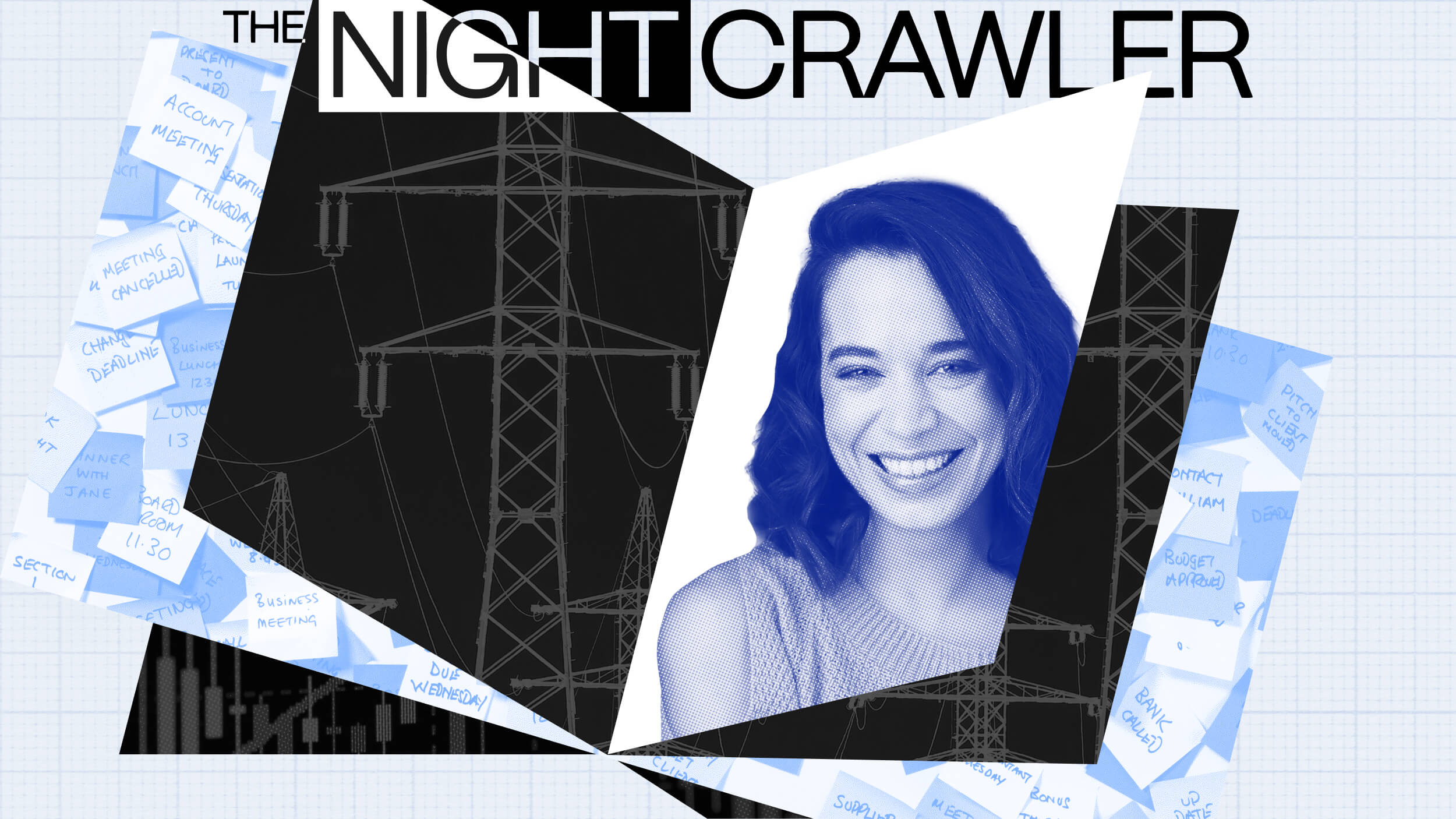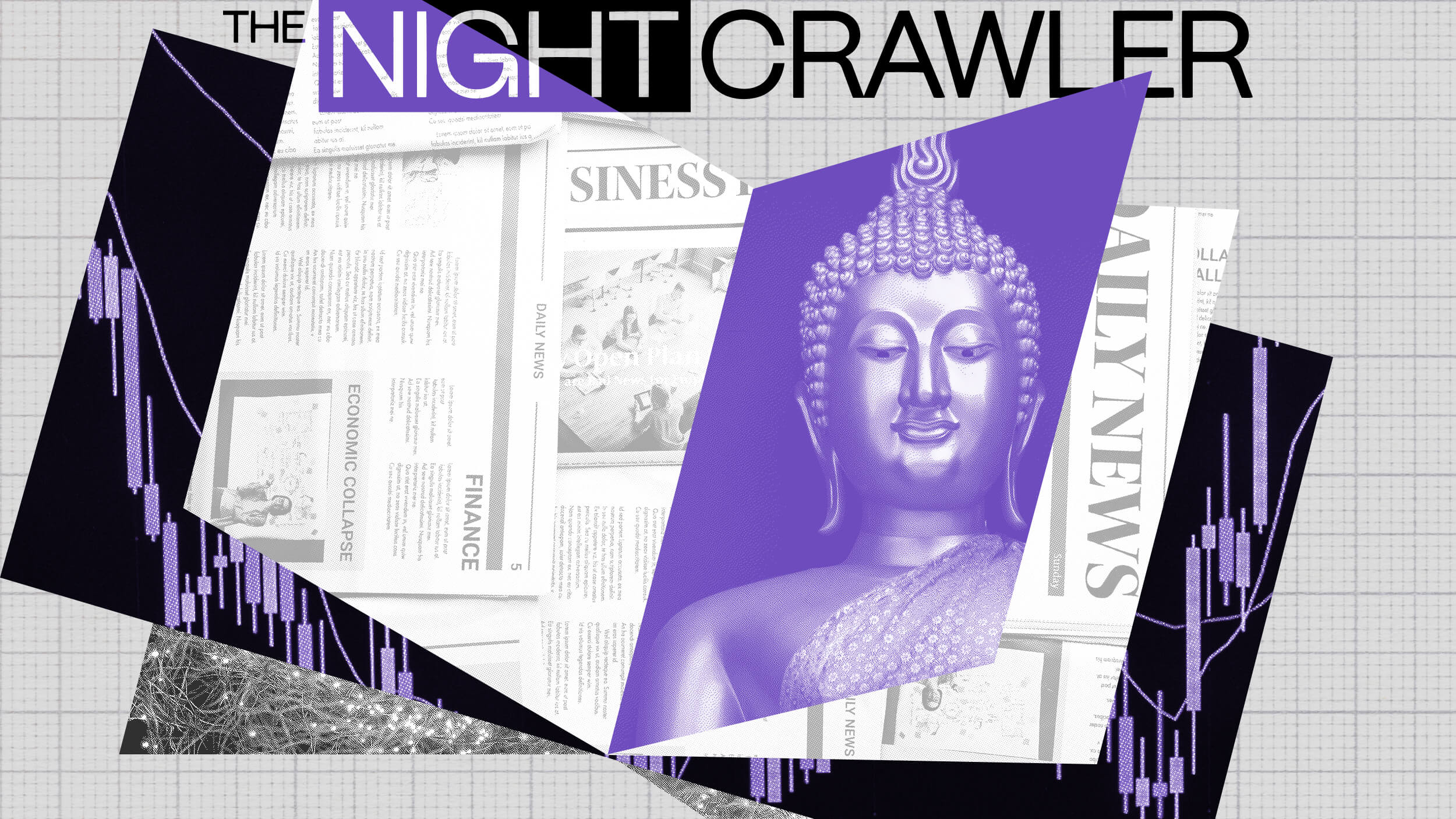The rising value of in-person connection

- Main Story: As AI floods the world with soulless content, private communities and the “cosy web” will only become more valuable.
- Strategist Zoe Scaman explores why trust — not just technology — sustains real connection.
- Also among this week’s stories: The pressing need for an energy revolution, the “stochastic mindset,” and the piggybacking genius of DeepSeek.
A recent trip to San Francisco — including time with several Nightcrawler readers — reinforced something I’ve been thinking a lot about: as AI floods the world with soulless content, private communities (built on authenticity) will only become more valuable.
Here’s the paradox: AI is getting so good at generating and optimizing content that it’s making what’s scarce — real human connection — more valuable than ever. This isn’t an investment thesis, just a conviction: the louder and more polarized the digital world becomes, the more we’ll crave what’s rare and authentic.
That’s why Zoe Scaman’s Decoding Community caught my attention — it’s a deep dive presentation into how (and why) communities thrive beyond algorithmic feeds. It’s a sharp take on why trust — not just technology — sustains real connection. (H/T Victor Fleurot)
“We suffer through the onslaught of increasingly negative, ‘end of the world’-style headlines from our news outlets, social feeds and peers on a daily basis,” Zoe, a strategist, writes. “Outrage, panic and existential despair are the ongoing flavors of the 2020s thus far and despite our best efforts, they’re seemingly inescapable. And so, when feeling overwhelmed with uncertainty, we do what humanity has done for time immemorial — we retreat, seeking comfort, familiarity and solace.” (H/T Victor Fleurot / Brand Response)
Key quote: “‘Cosy web’ is a term coined by Venkatesh Rao in 2019 — he used it to describe the increasingly private, closed-off niches of the internet, to which we have all retreated in recent times. The WhatsApp group chats, finstas, invite-only Discords, token-gated Telegrams, secret Slacks and Snaps. These are the places where the new internet magic is happening, away from the buzzkill of context collapse, screaming into the void and the ramblings of the masses. It’s in these quiet corners where we feel we can relax, settle in and be more ourselves (whichever version or facet we’re vibing with that day). We can form real connections, dive into our passions and revel in a sense of comfort and reciprocity.”
The high-energy future: why progress depends on power
Albert Wenger’s recent Energy and Progress talk makes one thing clear: no wealthy, low-energy societies exist. Every leap in human progress — fire, agriculture, fossil fuels — came from an energy breakthrough. But since the 1970s, growth has stalled.
As Albert says, conservation isn’t enough — we need an energy revolution to power electrification, AI, and even democracy itself. The good news? Solar is scaling fast. The challenge? Reliability — Germany’s Dunkelflaute shows why we need storage, nuclear, and carbon capture. The solution: build, build, build. A high-energy future means more progress, more prosperity. The alternative? Stagnation.
Key quote: “So what should be done? As we like to say in the U.S.: build, baby, build. There’s only one way to get out of this — you have to build a lot more stuff. You have to build a lot more storage, a lot more energy infrastructure. You have to build new types of energy, reactivate nuclear, and admit that you’re going to use fossil fuels for much longer than you thought. You have to build carbon capture. You just have to build, build, build.”
A few more links I enjoyed:
The Stochastic Mindset – via Konstantine Buhler (Sequoia Capital)
Key quote: “AI is the next era of computing, and one of its hallmarks is moving from deterministic to probabilistic or ‘stochastic’ outputs. As AI spreads, workers are engaging with a new software paradigm that calls for a new mindset. In a recent episode of Sequoia’s Training Data podcast, Dust co-founder Gabriel Hubert introduced the concept of the ‘stochastic mindset’ as ‘the biggest shift in the use of the tools that we have since the advent of the computer.’”
The Tsai Capital Investor Letter 2024 – via Christopher Tsai (edited by William Green)
Key quote: “This principle of focusing on steady, meaningful progress instead of fleeting outcomes extends beyond investing. A friend who’s achieved great success in the business world and in life once remarked, ‘You want to win a gold medal in the Olympics. You want to learn a musical instrument. You want to learn a foreign language. You want to build Berkshire Hathaway. What’s the formula? Dogged, incremental, constant progress over a very long-time frame.'”
What would a world with AGI look like? – via Rohit Krishnan
Key quote: “If the AIs can’t be perfect replacements but still need us for course correcting their work, giving feedback etc, then the bottleneck very much remains the people and their decision making. This means the shape of future growth would look a lot like (extremely successful) productivity tools. You’d get unemployment and a lot more economic activity, but it would likely look like a good boom time for the economy.”
DeepSeek and the ramification on the AI industry: winners and losers? – via Rihard Jarc
Key quote: “For those less technically equipped, the most simple way to understand these changes is that DeepSeek took OpenAI’s frontier model and used it as a teacher for their model. With this, they distilled the model into a smaller one while keeping almost all of its performance intact. Because the model is smaller, and with some other innovations, they drastically lowered the cost of training and running it.”
From the archives:
How to Make Wealth – via Paul Graham (2002)
Key quote: “If you want to create wealth, it will help to understand what it is. Wealth is not the same thing as money. Wealth is as old as human history. Far older, in fact; ants have wealth. Money is a comparatively recent invention. Wealth is the fundamental thing. Wealth is stuff we want: food, clothes, houses, cars, gadgets, travel to interesting places, and so on. You can have wealth without having money. If you had a magic machine that could on command make you a car or cook you dinner or do your laundry, or do anything else you wanted, you wouldn’t need money. Whereas if you were in the middle of Antarctica, where there is nothing to buy, it wouldn’t matter how much money you had.




